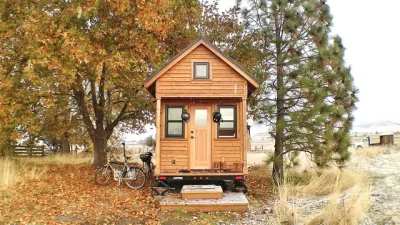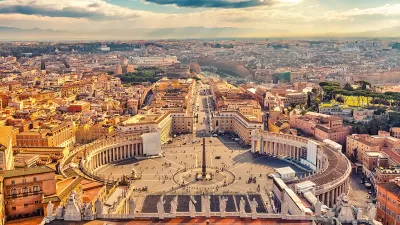Wired Magazine calls Mitchell Joachim 'a Frederick Law Olmsted for the 21st Century'. Joachim is at the forefront of thinking about the ecological footprint of cities, and one of Wired's 'People the Next President Should Listen To.'
"At the top of the agenda, Joachim says, is mobility and its inefficiencies. Citing US Department of Energy statistics, he says that while 29 percent of the nation's energy expenditure--what he calls "the suck"--now goes toward getting around, "in 50 years that will double." Among the biggest sources of waste, he argues, is the automobile--not only in energy but in the space it occupies (cars, he notes, spend more than 90 percent of the day parked). For nearly a century, Joachim says, "cities have been designed around cars. Why not design a car around a city?" So he did just that. One of his concept vehicles, the City Car , was named to Time magazine's Inventions of the Year list in 2007.
His various cars would be less machine than Facebook on wheels. Instead of rpm gauges, there'd be social networking software telling drivers where their friends are and how to get there. Made from neoprene and other soft materials, cars would no longer suffer traffic-fouling fender benders, merely what he calls "gentle congestion"--picture a flock of urban sheep grazing against one other. Like Zipcar vehicles, the cars would be shared. They would "read" potholes and send warnings to nearby drivers and city repair crews. Urban parking would be eased by intelligent real-time supply and demand management, with people bidding remotely for available spots."
FULL STORY: Mitchell Joachim: Redesign Cities From Scratch

Americans May Be Stuck — But Why?
Americans are moving a lot less than they once did, and that is a problem. While Yoni Applebaum, in his highly-publicized article Stuck, gets the reasons badly wrong, it's still important to ask: why are we moving so much less than before?

Using Old Oil and Gas Wells for Green Energy Storage
Penn State researchers have found that repurposing abandoned oil and gas wells for geothermal-assisted compressed-air energy storage can boost efficiency, reduce environmental risks, and support clean energy and job transitions.

Placekeeping: Setting a New Precedent for City Planners
How a preservation-based approach to redevelopment and urban design can prevent displacement and honor legacy communities.

Idaho Data: Unexpected Vehicle Repairs Exacerbate Housing Instability, Eviction Risk
Over 21 percent of clients struggle with transportation barriers.

A Year-Long Investigation On Permanent Supportive Housing
The New York Times reveals what’s working and what’s not in the cornerstone of Housing First.

Survey: US Public Spaces Not Meeting Community Needs
A lack of funding prevents many U.S. parks and public spaces from playing a more significant role in helping residents meet daily needs.
Urban Design for Planners 1: Software Tools
This six-course series explores essential urban design concepts using open source software and equips planners with the tools they need to participate fully in the urban design process.
Planning for Universal Design
Learn the tools for implementing Universal Design in planning regulations.
Heyer Gruel & Associates PA
City of Moreno Valley
Institute for Housing and Urban Development Studies (IHS)
City of Grandview
Harvard GSD Executive Education
Salt Lake City
NYU Wagner Graduate School of Public Service
City of Cambridge, Maryland




























